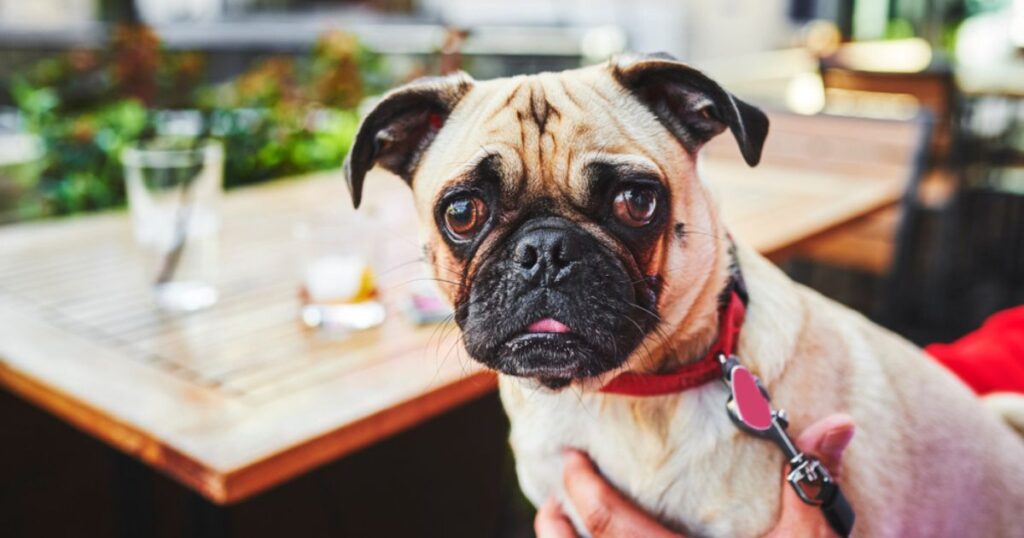- Jul 31, 2025
- 6 min read
Key Points
Alcohol consumption is extremely dangerous for dogs, potentially leading to severe health issues such as alcohol poisoning in dogs and long-term organ damage.
Providing safe alternatives like treats and fresh water is essential to keeping your dog healthy and happy.
Responsible pet ownership involves staying informed and vigilant to ensure your furry family member’s safety.
Beer is often a staple at gatherings and social events, with many pet owners enjoying a cold one on a hot day. But have you ever wondered if beer is safe for dogs? The short answer is no; dogs should never drink beer or any other form of alcohol. While it might seem harmless, even a small amount can pose serious health risks to your pets.
Understanding why alcohol is toxic to dogs and how to protect them is crucial for every responsible pet owner.
Alcohol and dogs don’t mix
To put it simply, dogs cannot have beer or any type of alcohol. Alcohol is toxic to dogs, even in small amounts, and can result in severe health problems.
There are generally 3 types of alcohol dogs may get into: ethyl alcohol or ethanol (found in alcoholic beverages), methyl alcohol (found in antifreeze), and Isopropyl alcohol or isopropanol (found in rubbing alcohol and some flea sprays).
Alcohols can affect your pet through ingestion or absorption through the skin. Either form of exposure can depress the Central Nervous System (CNS), leading to decreased function of organs and potentially organ failure.
With alcoholic beverages, like beer, the amount of ethanol that can be fatal depends on how much is contained in the drink and the size and age of your dog. Any amount, though, can be dangerous for a dog.
A dog's liver is not designed to metabolize alcohol the way humans’ livers can. What might be a small, enjoyable treat for you could quickly become life-threatening for your pup. Whether it’s beer, wine, liquor, or even alcohol-containing foods like rum cake, it should be strictly off-limits.
Why is beer bad for dogs?
Beer and alcohol in general can harm dogs in several ways. Here's a breakdown of the reasons why beer isn’t safe for dogs to drink.
1. Beer can cause alcohol toxicity.
Dogs’ bodies are unable to properly break down alcohol. Once ingested, alcohol starts impacting their central nervous system. While long-term exposure can lead to brain damage, even small amounts can cause alcohol poisoning in smaller dogs and negatively impact bodily functions almost immediately. Generally speaking, 5.55 g/kg (2.5 g/lb) of alcohol can be deadly. This is equivalent to 0.2 oz/kg (0.08 oz/lb). For smaller dogs under 10lbs, one fluid ounce of alcohol can be fatal.
2. Beer has harmful ingredients.

Hops (used in brewing beer) can be toxic to dogs and may cause hyperthermia, where their body temperature dangerously spikes.
Carbonation and additives in beer can lead to bloating and digestive discomfort.
Flavorings and chemicals in certain beer varieties can exacerbate health risks.
3. Beer has psychoactive effects.
Alcohol’s psychoactive effects can be disorienting and distressing for dogs, leading to confusion and unsafe behaviors. Dogs don’t understand what’s happening, which can heighten their distress and lead to more complications. After consuming a small amount of alcohol, they’re far more likely to hurt themselves in the disorientation that follows.
What happens if a dog drinks beer?
If your dog accidentally consumes even a small sip of beer, you need to monitor them closely.
Here are the symptoms of alcohol poisoning in dogs:
Vomiting
Disorientation or confusion
Weakness or trouble standing
Excessive drooling
Seizures
Slow or irregular breathing
Severe cases may lead to a coma or even death.
Alcohol poisoning symptoms in dogs can occur quickly after consumption, often within 30 minutes to an hour, depending on the amount ingested and the dog’s size. Initial signs, such as disorientation or vomiting, are the most common and tend to appear first. Severe symptoms like seizures or trouble breathing may develop if enough alcohol is consumed.
Compared to other items that are toxic to dogs, such as chocolate, symptoms from beer can onset faster due to rapid absorption into the bloodstream.
What to do if your dog accidentally drinks beer?
If you suspect your dog has ingested alcohol, it’s critical to act quickly. First, remove your dog from the source of alcohol to prevent further ingestion. Check the area to ensure no spilled alcohol remains accessible.
Monitor your dog closely for symptoms such as vomiting, weakness, or breathing irregularities. Keep them calm and limit their movement to reduce the risk of injury if they are disoriented or weak.
When to contact a veterinarian
You should contact your veterinarian or an emergency animal clinic immediately if you notice any signs of alcohol poisoning, regardless of severity.
If you’re unsure of when to take them to your vet, you can get in touch with the Pet Poison Helpline for support. Do not wait for symptoms to worsen—early intervention is crucial for successful treatment.
Possible treatments at the clinic
At the veterinarian’s, your care provider may perform a physical exam and take blood tests to assess alcohol levels and organ function. Treatments may include intravenous fluids to prevent dehydration and maintain electrolyte balance, medications to control seizures, and if breathing is compromised, oxygen therapy.
Severe cases may require intensive care and continuous monitoring to stabilize the dog. With quick action and positive response to treatment you can expect your pup to recover within 24-36 hours after they start displaying symptoms.
How to keep your dog safe from alcohol

To protect your dog, keep alcohol out of reach and make sure guests know it’s off-limits to pets. Store drinks in closed cabinets or on high shelves where curious paws can’t reach.
Make sure drinks are never left unattended at gatherings, as curious pets may sneak a sip. Educate guests and family members about the dangers of giving alcohol, including beer, to dogs. Many dog owners know the basics—like avoiding grapes and chocolate—but may not realize alcohol is just as harmful.
During parties or events, create a designated dog-free zone to prevent accidents involving open containers. Always dispose of empty bottles, cans, or cups promptly to reduce risk. Training your dog not to approach drinks or food on tables can also be helpful. Teaching everyone in your household these tips ensures your dog remains safe and healthy around potentially harmful substances.
Alcohol and dogs don’t mix
When it comes to your furry companion, beer and all types of alcohol should remain off the menu. The risks, ranging from alcohol poisoning to long-term organ damage, are simply not worth it.
Instead, focus on providing safe treats and clean water to keep your dog happy and healthy. Keep your beer for the humans and keep your pups safe. Cheers to being informed!
FAQs
Can dogs have non-alcoholic beer?
Non-alcoholic beer is not safe for dogs, as it may still contain trace amounts of alcohol and other harmful ingredients like hops or artificial sweeteners, which can be toxic to dogs. Even in small quantities, these substances can pose health risks, so it’s best to avoid giving your dog non-alcoholic beer altogether. Instead, provide pet-safe beverages or fresh water to keep your dog hydrated and healthy.
Can dogs have root beer?
Root beer is not safe for dogs due to its high sugar content and the potential presence of artificial sweeteners like xylitol, which is extremely toxic to dogs. Additionally, some brands may use ingredients like caffeine or certain flavorings that could harm your pet. It’s best to stick to fresh water to ensure your dog stays healthy and hydrated.
What should I do if my dog is drunk?
If you think your dog is showing signs of being drunk, your first step should be to call the veterinarian. In most cases, they will want to examine them as quickly as possible. Provide them with details of what your dog consumed and follow their instructions immediately. Symptoms may include loss of coordination, confusion, vomiting, or lethargy.
Can dogs have seltzer or other fizzy drinks?
Dogs should not have seltzer or other fizzy drinks. Hard seltzers contain alcohol which is dangerous for dogs. Carbonated beverages in general can cause discomfort in their digestive system due to bloating or gas, and many fizzy drinks contain artificial sweeteners, caffeine, or other ingredients that are dangerous for dogs. It’s always safest to stick to water for your pet’s hydration.

